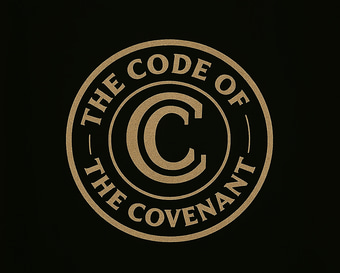
The Return of The Covenant

A Legally Recognized Voluntary Religious Covenant Marriage (VRCM)
We seek to establish a framework for Voluntary Religious Covenant Marriage (VRCM)—a faith-based marital structure governed by religious authority and recognized by the state for civil purposes
Key Features:
1. Voluntary Election
Couples married by their religious institution may elect to enter a VRCM at that time. This election would be recorded with the state for recognition in areas such as taxation, inheritance, and immigration.
2. Ecclesiastical Jurisdiction
All matters of marital governance—including discipline, reconciliation, and dissolution—would be adjudicated by the religious organization that solemnized the marriage in accordance with religious doctrine, not by civil courts (except in cases involving criminal law).
3. Equal Legal Recognition, Distinct Ecclesiastical Authority
The state would acknowledge the VRCM as a legally valid marital status but would not subject it to civil family law. This affirms the First Amendment rights of religious communities to define marriage within the framework of their religious doctrine.
4. Parallel Structure
The existing civil marriage contracts would remain unchanged and available. The VRCM would serve as an opt-in alternative for those who seek a faith-based marital covenant with legal recognition but without state interference.
In many states, the government still imposes itself on families who have chosen to opt out of the civil contract system. Instead choosing a private covenant. The state does this through mechanisms such as common-law marriage, cohabitation statutes, or default family law. In states like Texas, Iowa, Colorado, Kansas, Montana, Utah and many more. This imposition can occur regardless of the couple’s intent or the religious framework they may have chosen.
In other areas, even If the state does not impose itself, families attempting to opt out of the civil marriage system will face structural inequalities. Without a the states blessing, they will be denied access to family health plans, Family Tax advantages, inheritance protections, or immigration sponsorship—rights readily available to civilly married couples.
Those who would choose not to subject their union to state rule are left with a loose-loose. Those who remain under the state are governed by laws that may violate their convictions, while those who step out of it face systematic disadvantages.




What we propose
Voluntary Religious Covenant Marriage (VRCM) License Framework
Overview
This framework establishes a shall-issue license for religious institutions to solemnize VRCMs in partnership with the state. It balances voluntary religious autonomy with baseline safeguards for couples and vulnerable parties.
Eligibility Criteria for Religious Institutions
Religious bodies must meet these criteria to qualify for a VRCM license.
Be formally recognized under state or federal law as a religious organization.
Maintain a nonprofit status or equivalent charitable designation.
Submit an initial application with the state on a shall issue basis.
Minimum Operational Standards
Institutions must demonstrate capacity in these key areas:
Staff Qualifications
At least one ordained or authorized officiant.
Registered ecclesiastical or equivalent certified counselors for pre-marital and marital support.
Counseling Requirements
A minimum of 12 hours of structured church lead pre-marital counseling per couple.
Ongoing marital counseling available as needed or requested.
Crisis Management and Intervention
Mandatory crisis management training for counseling staff.
A written intervention plan detailing steps for domestic conflict, abuse, or mental-health emergencies.
Support Resources
A dedicated fund or established partnership for emergency aid.
Access to safe housing for individuals in crisis.
Safeguarding and Reporting
Child-protection policies in line with state law.
Background checks for all staff working with minors or vulnerable adults.
Governance and Transparency
Clear records of all VRCM ceremonies.
Biennial (Every 2 Years) audit made available to the licensing authority.
Continuing-education plan for counselors and crisis managers (e.g., conflict resolution, crisis response).
Application and Issuance Process
Institutions submit proof of staff credentials, counseling curriculum, crisis plans, and resource partnerships.
The state reviews applications within 60 days, verifying compliance with all minimum standards.
License granted, the licenses are issued on a shall-issue basis.
Unity
Join us to strengthen and restore marriages together.
Hope
Action
1-800-555-0199
© 2025. All rights reserved.
